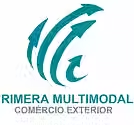International Ocean Freight: Safety, Economics, and Strategic Planning for High-Volume Operations
Ocean freight remains the primary mode of transport in international trade, accounting for approximately 90% of global trade volume, according to UNCTAD data. Its relevance is especially evident in operations involving bulky, heavy, or non-urgent cargo, offering an unbeatable cost-benefit ratio and broad geographic reach.
At Rimera, we integrate logistics planning, customs compliance, and operational management into FCL (full container) and LCL (consolidated cargo) ocean freight solutions, with support from origin to final destination.

Ocean freight remains the primary mode of transport in international trade, accounting for approximately 90% of global trade volume, according to UNCTAD data. Its relevance is especially evident in operations involving bulky, heavy, or non-urgent cargo, offering an unbeatable cost-benefit ratio and broad geographic reach.
At Rimera, we integrate logistics planning, customs compliance, and operational management into FCL (full container) and LCL (consolidated cargo) ocean freight solutions, with support from origin to final destination.
Ocean freight remains the primary mode of transport in international trade, accounting for approximately 90% of global trade volume, according to UNCTAD data. Its relevance is especially evident in operations involving bulky, heavy, or non-urgent cargo, offering an unbeatable cost-benefit ratio and broad geographic reach.
At Rimera, we integrate logistics planning, customs compliance, and operational management into FCL (full container) and LCL (consolidated cargo) ocean freight solutions, with support from origin to final destination.
Why choose international shipping?
It functions as a transportation contract and proves that the goods have been received for shipment.

-27%



